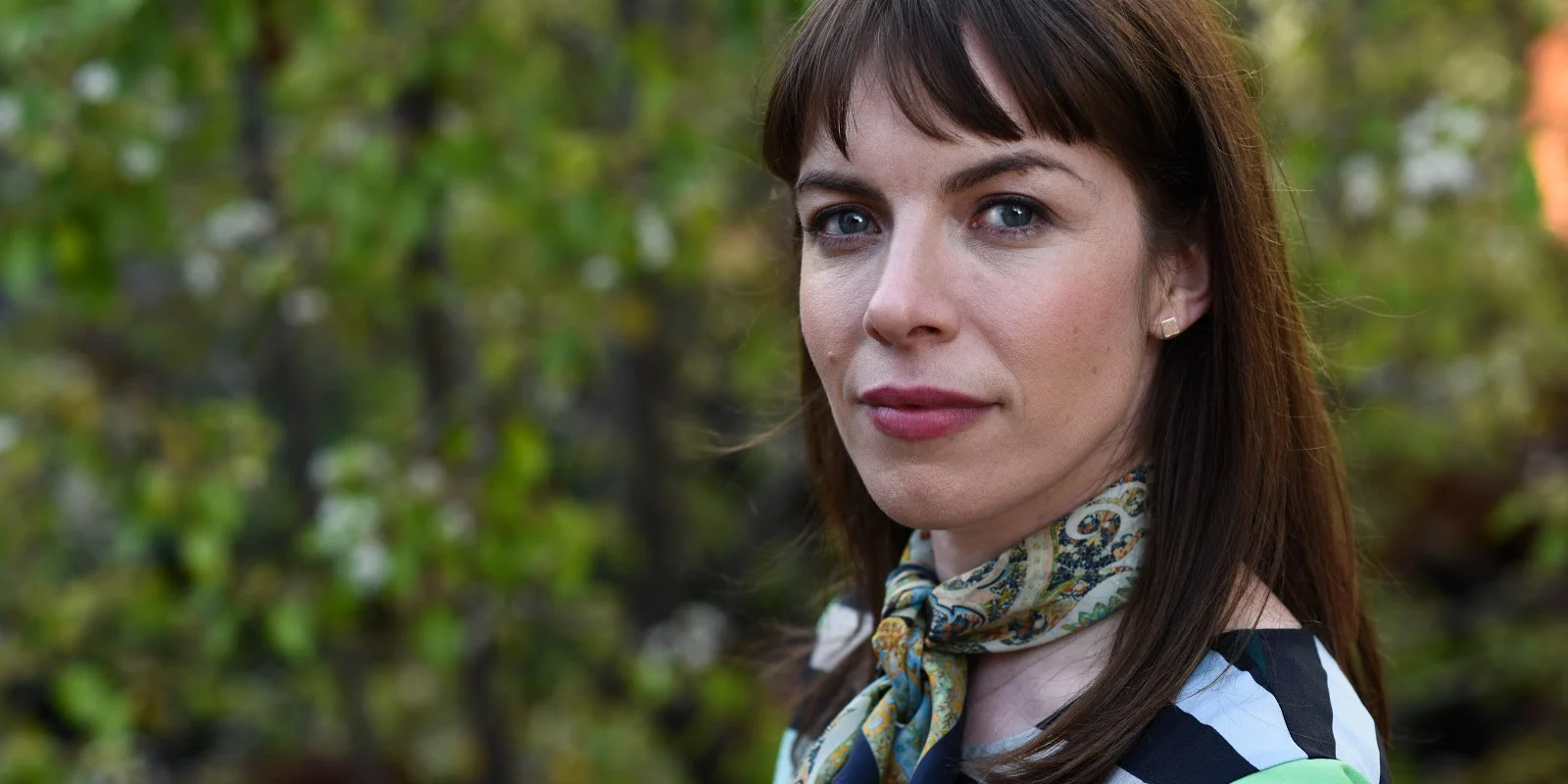
When she started at the Yale School of Medicine, Dr. Lucy Kalanithi knew a career in health was the best way she could help other people. As a consequence, she also knew she would witness a substantial amount of suffering.
“Witnessing suffering is one of the great privileges of being in medicine, but it’s also one of the liabilities,” she says.
But she never expected that the suffering would become personal.
In March of 2015, Dr. Kalanithi lost her husband to stage IV lung cancer. Dr. Paul Kalanithi was a neurosurgery resident at Stanford with a love of literature. He began writing When Breath Becomes Air, his memoir about grappling with his mortality, after being diagnosed with a terminal illness.
As physicians, the Kalanithis were not strangers to the emotional impact of chronic illness.
“I think we had a layer of suffering that was kind of removed or lifted from us,” Dr. Kalanithi says. “Because we have been part of that experience for a lot of other families, we understood that this kind of thing can befall anybody.”
The Kalanithis were also fortunate to have the Stanford medical community there to support them, even answering their detailed questions about health insurance.
“We had all these layers of privilege and support that I think a lot of people don’t have. But, it was still the hardest thing we ever did,” Dr. Kalanithi remembers. Neither of them imagined how illness would reshape their personal identities. “You realize how much of your identity is tied up in your future self, who you imagine you are becoming,” she says.
After Paul passed away, Dr. Kalanithi was left with a lot to take care of. She went on to write the epilogue to When Breath Becomes Air. When the book was published posthumously, it quickly touched hearts as a New York Times Bestseller. As a result of its success, Dr. Kalanithi got the opportunity to tour and speak about the memoir and Paul. She also had her young daughter Cady to look after and her career as an internist at Stanford to maintain.

Still, she had to find time to grieve and heal. “I had a lot of physical symptoms, like trouble sleeping and this really weird tingling in my hand that took a year to go away,” she remembers, “I think it was actually a symptom of grief.”
Dr. Kalanithi knew that unexpected challenges like hers are inevitable as a physician. She elaborates, “When you’re in medicine, you’re constantly called to rise to the occasion.” Every healthcare provider is continually put into situations that test their abilities and beliefs, in and out of clinic. “The biggest way we get called is when our loved ones get sick,” she reflects.
Dr. Kalanithi rose to this occasion and learned quickly how to manage her grief and resist physician burnout. “For me it was exercise, sleep, social connection, and meditation. And I feel like that really really helped me,” she advises.
While she believes these “nuts and bolts” of coping would work for most people, Kalanithi also believes everyone needs tailored support. “I just think that finding a peer group who have gone through the same thing you have is really helpful,” she suggests. For her, this was the “Hot Young Widow’s Club,” a Facebook group started by Nora McInerny.
She also learned that literature can provide some solace for medical professionals facing distress. Because medicine intersects with large questions about ethics and the human condition, literature spares some answers. Dr. Kalanithi explains, “There is so much we do that is not reducible to science or statistics, and I think literature helps fill that space.”
Nonetheless, burnout in medicine is too complicated an issue for self-care alone to solve. “I’m sort of obsessed with framing burnout not just as a personal resilience issue, but also as a system issue,” Dr. Kalanithi says. In order to fix the tough conditions and mentalities that lead to burnout, she believes we need to reform an unsustainable system, which means talking honestly and frankly about issues leading to burnout.
In addition to using her time to advocate for physician wellness, Dr. Kalanithi is also starting conversations about the quality of end-of-life care in the US. She believes we need to change the way we take care of terminal patients. She explains, “We have all this really spectacular technology and we’re still developing the wisdom or language about how to guide people, when to use it, and when it might actually cause them more suffering than benefit — and in addition, we’re managing our own moral distress, and helping patients shape new narratives when the simplistic ‘battle metaphor’ of illness doesn’t fit for them.” By thinking more carefully the kind of care they provide, healthcare providers can better attend to their patients’ values.
Much of what Dr. Kalanithi does now ties back to Paul and continuing his legacy. He did his best to make grief easier for her. Quickly after realizing the reality of his prognosis, Paul told Lucy that he wanted her to remarry after he died. She remembers fondly, “He was so focused on my coping too and even my future, the me that would exist after him.”
To this day, Dr. Kalanithi tears up when thinking about the impact Paul’s words will have on future generations. “I’m really proud of Paul. And it shows that the things that Paul wrote and said are actually really important. It’s part of what all of us are thinking about and struggling to try to make meaning of.”




